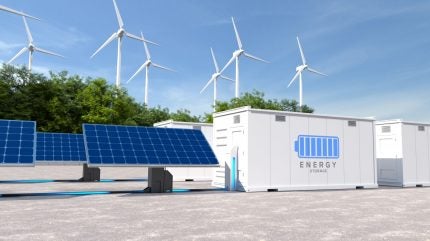
Renewable energy solutions company Monsson has announced the acquisition of 100% shares in a 60 megawatt-hour (MWh) battery energy storage system (BESS) project in the Eskilstuna Municipality of Sweden.
The deal was executed with independent renewable energy producer Neoen and is part of Neoen’s strategy to concentrate on larger-scale projects.

Discover B2B Marketing That Performs
Combine business intelligence and editorial excellence to reach engaged professionals across 36 leading media platforms.
This acquisition marks Monsson’s first implementation of its own BESS solution in Sweden, tailored to withstand the country’s challenging weather conditions.
The BESS project is fully permitted and scheduled to commence construction in June 2025.
Monsson Energy CEO Joanna Lilliequist stated: “Monsson has been active in Sweden for over a decade, mainly through wind farm operation and maintenance services.
“With this acquisition, we are now positioning ourselves as a developer, service provider and investor, committed to acquiring, building and operating advanced energy storage systems across the Scandinavian market.”

US Tariffs are shifting - will you react or anticipate?
Don’t let policy changes catch you off guard. Stay proactive with real-time data and expert analysis.
By GlobalDataMonsson’s energy storage systems are designed to guarantee high levels of system efficiency and availability for grid services and electricity trading.
The company aims to deploy more than 200MWh of storage capacity in the future in Sweden, laying a foundation for further investment and partnerships within the region.
Monsson Group head of mergers and acquisitions Sebastian Enache stated: “We currently operate 72MWh of energy storage and have another 348MWh under construction. With the additional 60MWh project in Eskilstuna, we’re aiming for a European storage portfolio of over 1,000MWh, including projects in Germany, Finland, Italy and Croatia.”
In a related development, Verbund Wind Power Romania, part of the Austrian energy group Verbund, acquired a fully developed wind project located in Caraș-Severin County, Romania, from Monsson in April 2025.
The 272MW wind project has an estimated annual production of approximately 569gigawatt hours.
The project has secured all necessary permits and connection points, with construction to begin in 2026.





